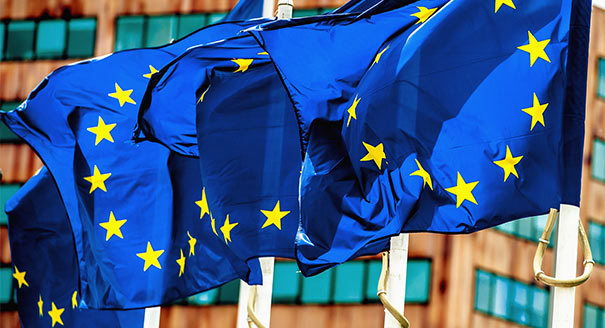The main source of Russian aggression is a profound mistrust of the West and the firm belief that it intends to inflict a “strategic defeat” on Russia. As long as this fear persists, the war will not end.
Tatiana Stanovaya
{
"authors": [
"Marc Pierini"
],
"type": "legacyinthemedia",
"centerAffiliationAll": "dc",
"centers": [
"Carnegie Endowment for International Peace",
"Carnegie Europe"
],
"collections": [
"Europe’s Southern Neighborhood"
],
"englishNewsletterAll": "",
"nonEnglishNewsletterAll": "",
"primaryCenter": "Carnegie Europe",
"programAffiliation": "EP",
"programs": [
"Europe"
],
"projects": [],
"regions": [
"Middle East",
"Europe",
"Western Europe",
"Iran"
],
"topics": [
"Foreign Policy"
]
}
Source: Getty
The EU faces a series of dramatic challenges in the Mediterranean area; however, internal structural changes to the union have diminished its foreign policy abilities.
Source: IEMed Mediterranean Yearbook 2016
While the Mediterranean area was the subject of a major EU foreign policy initiative in 1995, it has gradually become the epicentre of the most dramatic challenges confronting the EU: terrorism, wars in Syria and Libya, instability in Tunisia and Egypt, the refugee crisis, massive migration challenges, a shift from democracy to autocracy and the Kurdish conflict in Turkey. Simultaneously, the EU’s inner structural changes (Lisbon Treaty, creation of the European External Action Service) resulted in a substantial diminution of its foreign policy abilities. The question therefore arises for both internal and external reasons: Is the EU standing the Mediterranean test?
The November 1995 Barcelona Conference launched the Euro-Mediterranean Partnership on the basis of intensive consultations with all countries concerned and in a spirit of equality. The so-called ‘Barcelona Process’ quickly registered good results and a myriad of joint projects and networks were launched. The horrendous attacks in the United States on 11 September, 2001 radically changed the political context. Authoritarian regimes such as those in Egypt, Syria or Tunisia, who had subscribed to the partnership, promptly reverted to their favourite narrative with the West: ‘we are your best firewall against Islamic terrorism.’ The aftermath of the suicide attack on the Djerba synagogue on 1 April, 2002 constitutes the perfect example of the premium given to Arab authoritarian regimes by 9/11: by releasing key elements of the enquiry to France and the US, the Tunisian leadership literally offered them on a silver tray the then-number 4 of Al- Qaeda and planner of the twin towers attack in New York, Khaled Sheikh Mohamed. For Western leaders, engaging the Tunisian President on human rights and fundamental liberties became a secondary priority. There could not be a better example of how 9/11 drastically altered the spirit of the Barcelona Process, especially on governance matters. Later on, then President Sarkozy’s own ambitions in the Mediterranean and the anti-EU mood of his entourage resulted in the hasty launching of the Union for the Mediterranean (UfM), essentially designed to put a dominant French imprint on the relationship with the Mediterranean area. Today, there is not much to celebrate concerning the UfM’s achievements. The Arab Spring of 2011 further upended the EU’s Mediterranean policy.
The Lisbon Treaty started being implemented in January 2011, exactly when the Arab Spring began in Tunisia, followed by Egypt, Libya and Syria. The EU was caught unprepared, in part but not entirely, because of its own institutional reshuffle. Transferring the ‘diplomatic wing’ of the European Commission to the nascent European External Action Service and incorporating to the latter diplomats from EU Member States was a slow and painstaking operation, despite a positive launching narrative. But the overall political context was negative too: post-Lisbon, the ‘big three’ Member States were not too keen on leaving foreign policy-making to EU institutions, which, in any case, they deemed incompetent. Simultaneously, the nature of the Mediterranean challenges had changed: with major upheavals everywhere, strong military and counter-terrorism in the Libyan and Syrian revolutions, and strategic stakes such as the Suez Canal in Egypt, the crisis was predominantly handled from a military and intelligence perspective. This, in turn, left little room for EU action, be it diplomatic or technical (project aid, support to reforms).
In addition, the EU and national capitals had a hard time understanding the change of paradigm in Arab countries, especially the deep roots of the revolution in the demographic, social, economic and political fields. They could not grasp how poorly the EU was perceived as protecting the people (‘Where were you when we were tortured?’) and how profound the change of political tide was, bringing Islamist parties to the fore, at least in the initial elections in Tunisia and Egypt. A paradox slowly and painfully emerged in European capitals: the Arab revolutions were as much anti-Western as they were pro-rights. Hence, the EU’s legitimacy as a partner for the future was relatively weak, at least initially. Moreover, with state structures collapsing in Libya and Syria and challenged in Egypt, there was even less room for the EU to act, especially as the EU cooperation machinery was essentially geared to transferring economic and political governance models to partner countries through their governments (now engaged in countering revolutions) and civil society (now repressed). What was left from pre-revolution cooperation schemes with authoritarian regimes to ‘reform the judiciary’ or ‘promote the development of medium-sized businesses’ made little sense post-revolution. The implications of the Arab revolutions on EU policies toward its southern neighbourhood were in fact much bigger than they looked at the outset. Political engagement with new leaders became more important than well-defined cooperation schemes, but the EU machinery (whether EEAS or the Commission) wasn’t really prepared for such a change.
This article was originally published in the IEMed Mediterranean Yearbook 2016.
Carnegie does not take institutional positions on public policy issues; the views represented herein are those of the author(s) and do not necessarily reflect the views of Carnegie, its staff, or its trustees.
The main source of Russian aggression is a profound mistrust of the West and the firm belief that it intends to inflict a “strategic defeat” on Russia. As long as this fear persists, the war will not end.

Tatiana Stanovaya
Europe’s interests in Syria extend beyond migration management, yet the EU trails behind other players in the country’s post-Assad reconstruction. To boost its influence in Damascus, the union must upgrade its commitment to ensuring regional stability.


Bianka Speidl, Hanga Horváth-Sántha
European democracy support strategy in 2025 prioritized protecting democratic norms within Europe. This signals the start of a structural recalibration of the EU’s approach to democracy support.



Richard Youngs, ed., Elena Viudes Egea, Zselyke Csaky, …
It’s dangerous to dismiss Washington’s shambolic diplomacy out of hand.

Eric Ciaramella
EU member states clash over how to boost the union’s competitiveness: Some want to favor European industries in public procurement, while others worry this could deter foreign investment. So, can the EU simultaneously attract global capital and reduce dependencies?

Rym Momtaz, ed.